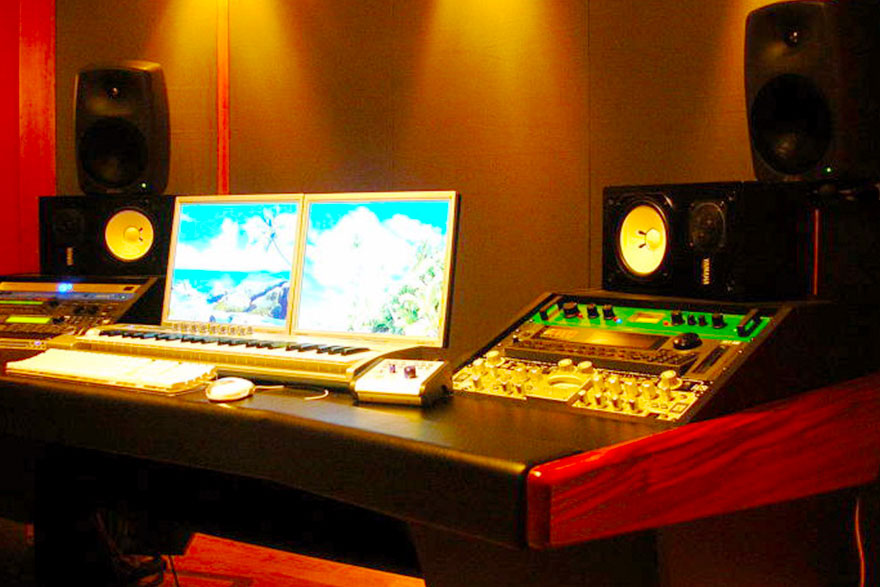The best music schools will teach you how to DJ, musician, producer, or engineer but do you need the education?
No, you do not need a degree of any kind to be a successful musician, music producer, or recording engineer.
Even so, thousands of hopefuls head to schools across Canada, the United States, and internationally looking to gain the education required to dominate these categories.
In this article, we hope to shine a light on why we might recommend secondary education for those looking to get involved in the music business.
Do I Need To Go To School To Become A Musician? No, Not At All!
Fact: Hip-hop music, house music, EDM, and pop music are filled with musicians who never received a secondary education.
Though there are music genre education programs, how to be a songwriting programs, and a wide range of music theory courses available, there is no hard and fast rule saying you must attend these.
Becoming a musician is an easy task. Anyone can pick up an instrument and get something out of it. Anyone can sing a song and get something out of it. Anyone can write. The difficult truth in music is that the challenge is not in producing a ‘song’, it’s in producing a ‘great song’. Even the most successful musicians of our time continue to write and produce music until the day they die because they believe their greatest song has yet to be written.
That’s the mindset so many musicians have, from Paul McCartney to Dr. Dre. For a musician, it’s a lifelong pursuit.
Why A Degree In Music Is An Advantage To Everyone From Engineers To Pop Stars
For every example of someone who does not hold a degree in music, there are increasingly more examples of successful pop musicians who come from a secondary education program.
The Berklee College of Music is one of the United States’ most acclaimed institutions for music students.
Some of the more commercially successful artists to come out of Berklee’s doors include blues guitarist John Mayer, jazz guitarist John Scofield, rock superstar St. Vincent, pop artist Charlie Puth, jazz bassist Esperanza Spalding, pianist Diana Krall, film composer Howard Shore, and pop songwriter Meghan Trainor.
The progression of music into more advanced forms of songwriting and production means no separation between those with an academic background and those without.
Music School Can Make Some People A Better Musician With Newly-Acquired Skills
If you feel like you would benefit from going to school for music, you might. A degree is never needed for music but those who have it, they may find they have more musical knowledge to draw from to create their tracks.
The saying of, “you need to know the rules to know how to break them” rings true for some.
If you feel like your vocal skills are not there yet, that your musicianship is not up to par, or that you don’t have the discipline or background to make it, going to school can be a great way to get some perspective.
Needless to mention, there are examples of those who have gone to school and hit it big, and then those who haven’t and who were simply discovered, like Justin Bieber. Beyond what you’ll learn in the classroom, you’re also likely to find yourself networking with other like-minded musicians. There’s no telling what could come of those relationships.
The key thing to being a musician is to make music. It doesn’t matter if you have an academic background to do so or not, or whether you’re in school or trying to make a go of it on your own. As long as you’re creating, that’s the main thing.
If you’re an instrumentalist looking to get better, are looking to challenge yourself from a musical standpoint, or want to learn more about music theory, there are books out there and lessons but you may have to go the route of college or university.
With regards to education, there are plenty of manuals to browse, YouTube tutorials to look up, and a lot of guidance out there.
Thankfully, we live in an age where information is readily available. That puts every musician on a somewhat even playing field.
Do I Need To Go To School To Become A Record Producer? Not Exactly!
There are a number of 4-year music production courses out there that a record producer could benefit from.
In many cases, record producers have knowledge as both musicians and recording engineers. As an aspiring record producer, you may wish to build a skillset in one or both of these categories of work.
The benefits of this is, as a musician, you may better understand where an artist is coming from in producing their music. As an engineer, you can physically get into the studio and help musicians achieve the sound that they or you want.
There’s a high value in having a diverse background of experiences to draw from as a music producer, which is why many music producers come through being involved in so many unique projects. Deciding on whether to go to school to become a music producer or not, consider the skillset required to perform in this role.
A producer is expected to have strong musical aptitude, strong listening skills, the ability to communicate clearly with those around them, and familiarity with audio equipment and software. If you’ve got these bases covered, you may not need school.
The day-to-day life of a producer may not rely on one’s academic background but education has a tremendous role to play. Education gives someone the chance to be around musicians and other creators, which could potentially open up job opportunities down the line.
Education also allows a producer to explore their own identity and challenges their philosophies on music production. Above all else, music education allows a student to see how other producers get it done, studying different styles and methods to possibly help develop one’s own style. These are all hugely positive things.
For these reasons, you may not have to go to school to be a musician or an artist but if you’re going to be a music producer and you don’t have connections to rely on for a way into the business, a secondary education institution might be recommended.
Remember, producers are there to produce the best possible result for the recording artist, the record label, and any other stakeholders involved.
There are many high-profile producers out there who get the best out of themselves and their artists, from Kanye West to Dr. Dre, Jack Antonoff, Danger Mouse, Greg Kurstin, Paul Epworth, and more.
Though not every track you produce will be a hit, if you can’t get the performance you want from your artists, you have no chance at competing with the names mentioned. For many people, the only way to do that is by seeking out a formal education.
For others, they’ll be so determined or unwilling to entertain the idea of secondary education, they’ll jump right into the heart of music production. Ultimately, there is no right or wrong way to go about being a producer. Choose the path that inspires you, and weigh the pros and cons according to the genres you want to jump into and the knowledge you feel you need to get the job done.

Do I Need To Go To School To Become A Recording Engineer? Probably, Yes!
To be a recording engineer requires a specialized knowledge in sound and audio production. To be a recording engineer, sure, there are tutorials online and plenty of knowledge but until you get in the studio, it’s all just words on the page. To be a strong recording engineer, the best thing anyone can do is to get into the studio and get the experience.
The benefit of education is that it provides an engineer with specified knowledge on what to listen for when adjusting equipment.
As fine-tuned as one may assume their ear to be, they need to know what they’re listening for to get the best performance out of everyone involved. That’s why education has such an important role to play. The degree itself holds no importance. It’s just a piece of paper. However, the experience one receives in the studio as a recording engineer in training is invaluable.
If you’re aspiring to be a recording engineer, arguably the best thing you can do for yourself is to get yourself into an education program of some sort and to keep your ears open. Despite the heavy emphasis placed on education for recording engineers, not all recording engineers have received a formal education on the subject.
In fact, the vast majority of the past hundred years of popular music and the engineers who have worked on a lot of big records have no academic background. A lot of people will point to this and assume because their favourite recording engineers have no college education, it’s justification for them not getting one. Here’s why we think that’s a skewed view.
Record engineering has changed a lot in the last 75 years. A great-sounding record in the 1970s may have had a completely different engineering approach to a great-sounding record from the 1990s. Furthermore, the best sounding tracks from the 1990s would have been built completely different from tracks of today.
Being a recording engineer has advanced so much that it almost requires one to go to college and to specialize in the subject.
So to recap, no, you don’t need to go to college or university for audio engineering. Should you though? Yeah, probably. It won’t matter to anyone else but it may very well help strengthen your skillset and certainly get you prepped to engineer what could be big records in your future.
At the end of the day, it comes down to being able to do your job well and the skillset you want. If you’re inexperienced, go to school and get the experience. If you’re experienced and are stuck in a rut with no idea how to move forward, school can be great for this as well.
If you’re good at what you do, you’ll get the gig. If you’re just average and there’s someone better in competition, you’re as good as gone. An aspiring musician can write songs and work on their physical performance rather easily. A music producer can do the same. But a recording engineer needs to get into a proper studio and that’s not always an easy feat. Don’t think you’ll just knock on the door of your local studio and get a job as an engineer with no experience or education.
To these points, the investment in a recording engineer’s formal education will pay off.
The Impact That The Best Music Schools Can Have On A Musician
The music business is an eclectic mix of misfits, high-class professionals, individuals with strong educational backgrounds, and individuals with no formal education to their name. To get experience, sacrifices often need to be made. The same can be said for earning an education.
Some of us are naturals but for the vast majority of us, we need further training and education to know how to get the best out of ourselves. By setting out on a journey towards being formally educated, that will help build confidence and relationships with others seeking success in the music industry.
Let’s be clear in saying that getting an education does not guarantee you success or riches, just like hard work on its’ own does not. Success in music is just as much about experience and hard work as it is chance. Choose the path you feel best to walk down.
We are only young once. There are only so many opportunities out there for musicians, producers, and engineers. Be ready when the opportunity comes to you and take it.
No one wants to be stranded in a situation with no idea on how to self-perform to get the best possible result out of everyone around us. Be it from a classroom, through hundreds of tutorials online, or real-world experience, it’s integral to set yourself up for success. Just because you put in the work, if you think a track you’re involved with is going to go viral, hit a billion views, and be a big hit, you’re going to be very lost and disappointed when things don’t go your way.
Consider the pros and cons of going to school for music. Remember, what’s best for you might not be best for the next person.
Thankfully, the only person you have to answer to is yourself. Do what’s right for you and your musical expression.








